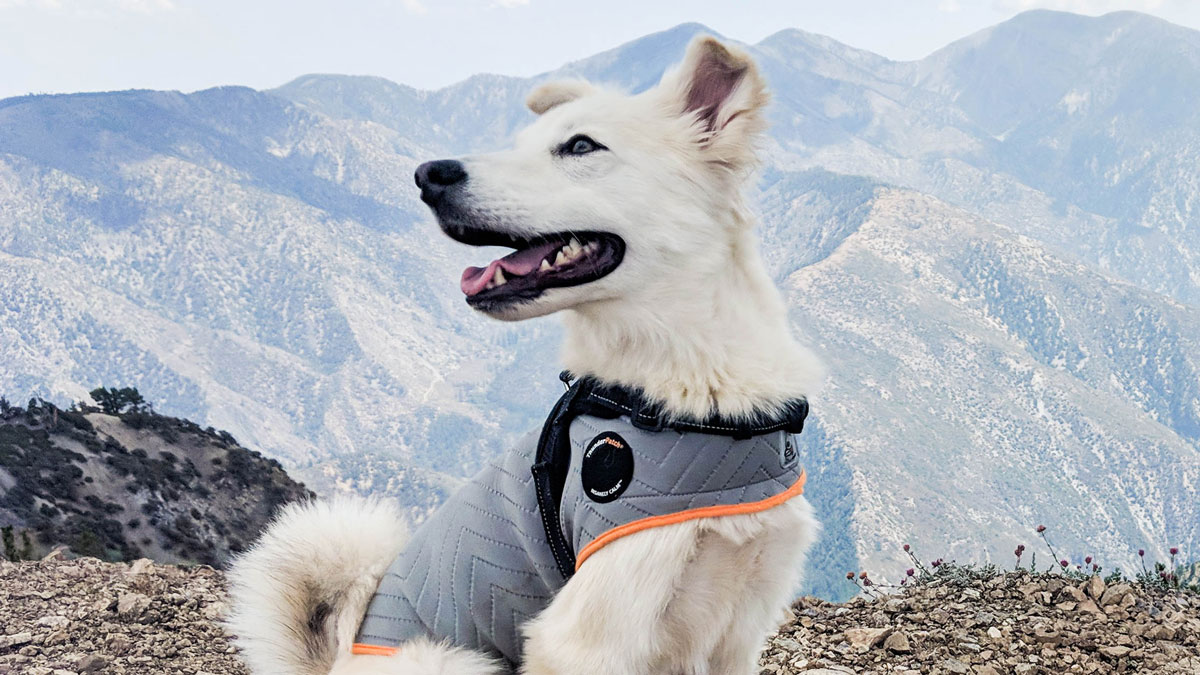Anxious Seeks Canine – Part 14: ‘Hypochondriac’
Anxious Seeks Canine is a memoir blog series about a gay man living with Asperger’s, mental illness, and the relationships that may very well be fueling it. Names and identifying details have been changed to protect the privacy of all featured individuals. Except for the dog. Here’s part 1, 2, 3, 4, 5, 6, 7, 8, 9, 10, 11, 12, 13, 14, 15, 16, 17, and 18. Subscribe for more posts.
I
Was it strange that I staked so much on a Halloween dog pageant? Yes. Ridiculous, even? Certainly. Still, knowing this, I couldn’t shake the feeling that victory had been snatched from my grasp.
Upon returning home, I slumped into a chair, dropping a bag of sample goodies I’d collected from a pageant vendor beside me.
Cash sniffed at the bag. Muttering, I pulled out the treat packet.
“Fine,” I said, scattering pieces onto the floor. “You win.”
Something glinted at the bottom of the bag. Yanking out the Oscar-style participation trophy I’d been handed upon pageant signup, I glowered at its faux-gold finish and the seams where the front and back segments connected.
Cash got a trophy, and what did I get? Nothing. Where was the recognition of the strides I’d made in orchestrating Cash’s makeover? It was just plain unfair.
Having polished off the treats, Cash now looked up at me, expectant.
“Haz more?”
“You know,” I began, “maybe other people are taken in by your puppy charm. But let’s be clear: I know you just for what you are. Now take that dress off.”
Not understanding, Cash planted his paws on my knee.
“More please.”
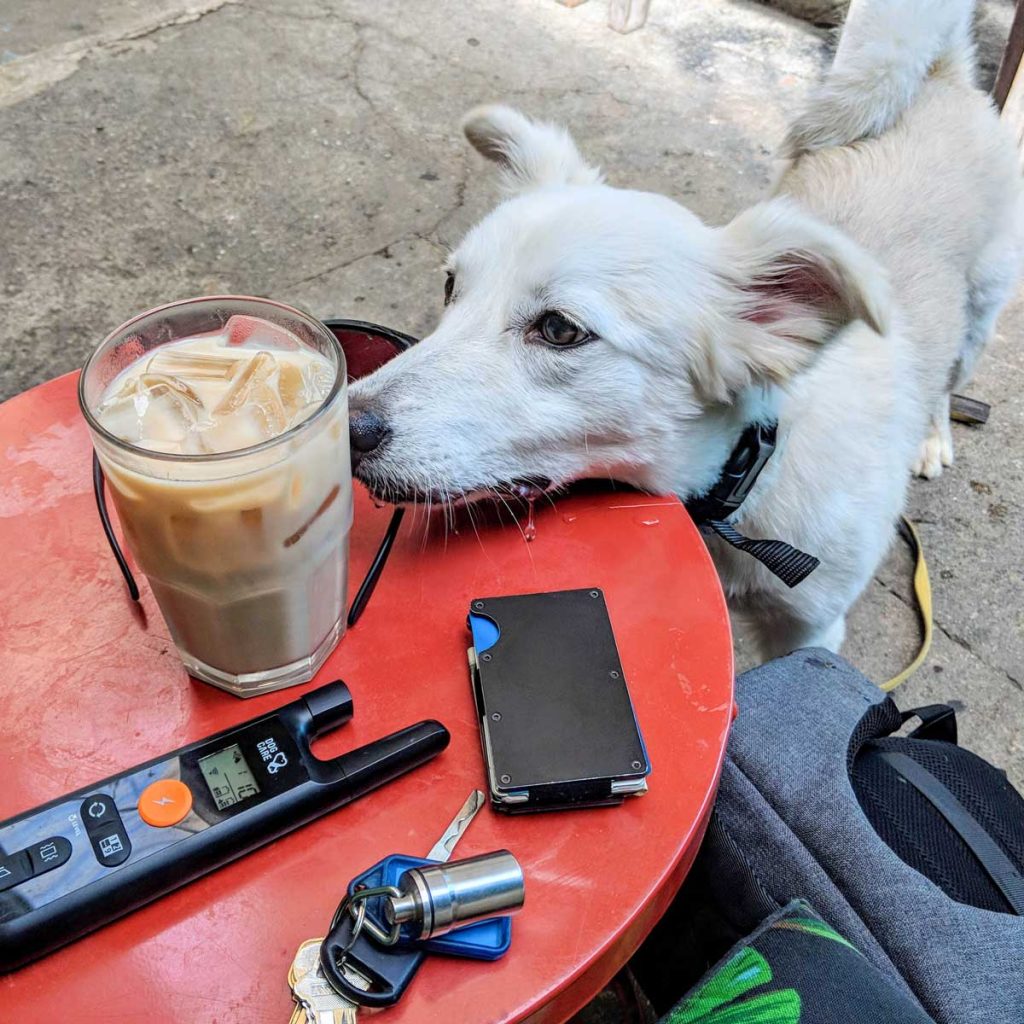
Flinging the trophy away, I lifted Cash’s paws over his head and yanked off the garment. Then I strapped on his anxiety vest and left him to stare placidly at the wall.
My disappointment aside, Cash’s behavior at the dog pageant was yet another example of the steep difficulty gradient I faced as his owner.
Further trips to the dog park were now ruled out. But long after we had stopped going, Cash would continue to yip during car rides.
The noise was so shrill, so earsplitting, I half-wondered if my dog might be standing on an electrified grid. Fear, excitement, or a mixture of both – I was never quite sure what emotions prompted Cash’s meltdowns, and with my diploma in dog interpretation still pending, I was at a loss.
Anxiety pervaded almost every other activity. Cash refused orders to stay out of the kitchen while I was cooking. A greedy little opportunist, he would pounce the instant a potato peel hit the floor, only to be plagued by intestinal strife the following day.
Putting him behind a baby gate only sparked whining, as Cash grappled with the horrifying reality of me not being within immediate view.
Looking at our common afflictions, you might be inclined to believe that cosmic gears were grinding away, ensuring that the stars aligned to bring us together.
For who better was there then I to understand my poor dog’s stress, his IBS, his ever-growing needs?
And yet somehow, I knew the cosmos had made a critical error in its calculations.
II
If you’ve had a troubled childhood, there’s a chance that becoming yourself a parent can bring a lot of those experiences bubbling back up.
Latent feelings of unworthiness are evoked, and old defences deployed. I was like a swimmer, battered by waves of self-criticism, buoyed only by water wings of self-justification.
When faced by Cash’s neediness and my seeming inability to address it, I simply told myself that I was “doing the best I could”.
“I always made sure you had clothes on your back,” went my own mother’s exonerations. “There was always food on the table. You never went hungry.”
And what more could any growing child possibly require? What’s that you say? Patience? Compassion?
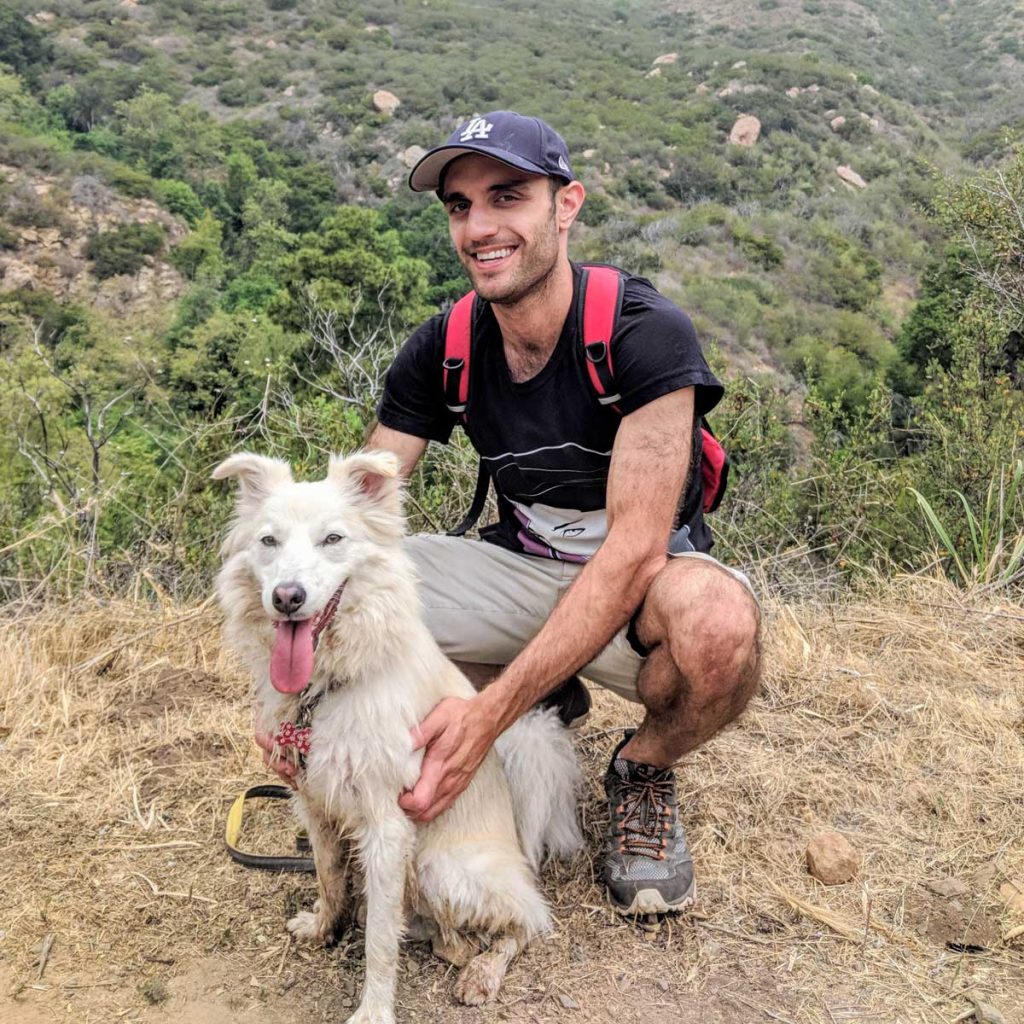
My parents after all lived not in a world of wishy-washy feelings, but hard necessity. When I was 16, I complained to them of symptoms stemming from my then-undiagnosed IBS.
My mother made multiple appointments to see doctors and specialists. But when the food allergy tests came up negative, she and my father threw up their hands in defeat.
“You’re just being a hypochondriac,” went their refrain. It may as well have become my middle name, for the number of times it was used.
Only a decade later would I recognize my folk’s evasion for what it was. My asking for help, the revealing of my vulnerability, had been a request for them to in turn be vulnerable.
Saddled with worries of their own, mom and dad had sidestepped the implicit request for recognition, falling back instead on invalidation.
Not feeling heard, or at worst, feeling actively ignored, taught me to bury my problems, a classic stratagem for the aspiring neurotic.
Now I was in possession of a child of my own, a creature who depended utterly upon me for my help. A dog who would not – could not – leave the parental home in search of healing, as I had done.
I had tried in my own way to remedy the situation, but now I felt like I had reached capacity; that the empathy well was running dry.
How had I let it get to this point? Why, like the proverbial frog in boiling water, had I not sought escape sooner?
Trying to avert a descent down the convenient corkscrew of self-blame, followed by excuses, and still more blame, I took Cash for a walk.
Cash paused to pee on a clump of grass and was walking away when he yelped.
Noticing he was limping, I bent down to study Cash’s trembling paw. He yelped again, struggling to escape my hold.
These were the cries, surely, of a dog being beaten with a plank of wood. The sound drew looks from pedestrians and drivers alike.
A pickup queuing at the traffic lights drew to one side.
“Everything okay?” came a vice. I looked up to see a man leaning over the driver’s side window. “Did he step in glass?”
“I’m not sure,” I replied.
“Need any help?”
There were homeless people collapsed on the sidewalk, possibly unconscious, possibly dead, and yet no one stopped to check on them. Yet here was a perfect stranger, rushing to the aid of a dog with a sore paw.
“It’s all good,” I told the pickup driver. “Thank you, though.”
Probing the area between Cash’s toes, I discovered a single blade of dry grass. Within moments of its extraction, my dog was walking as if nothing at all had just happened.
A grunt of dismissal escaped me.
“Hypochondriac.”
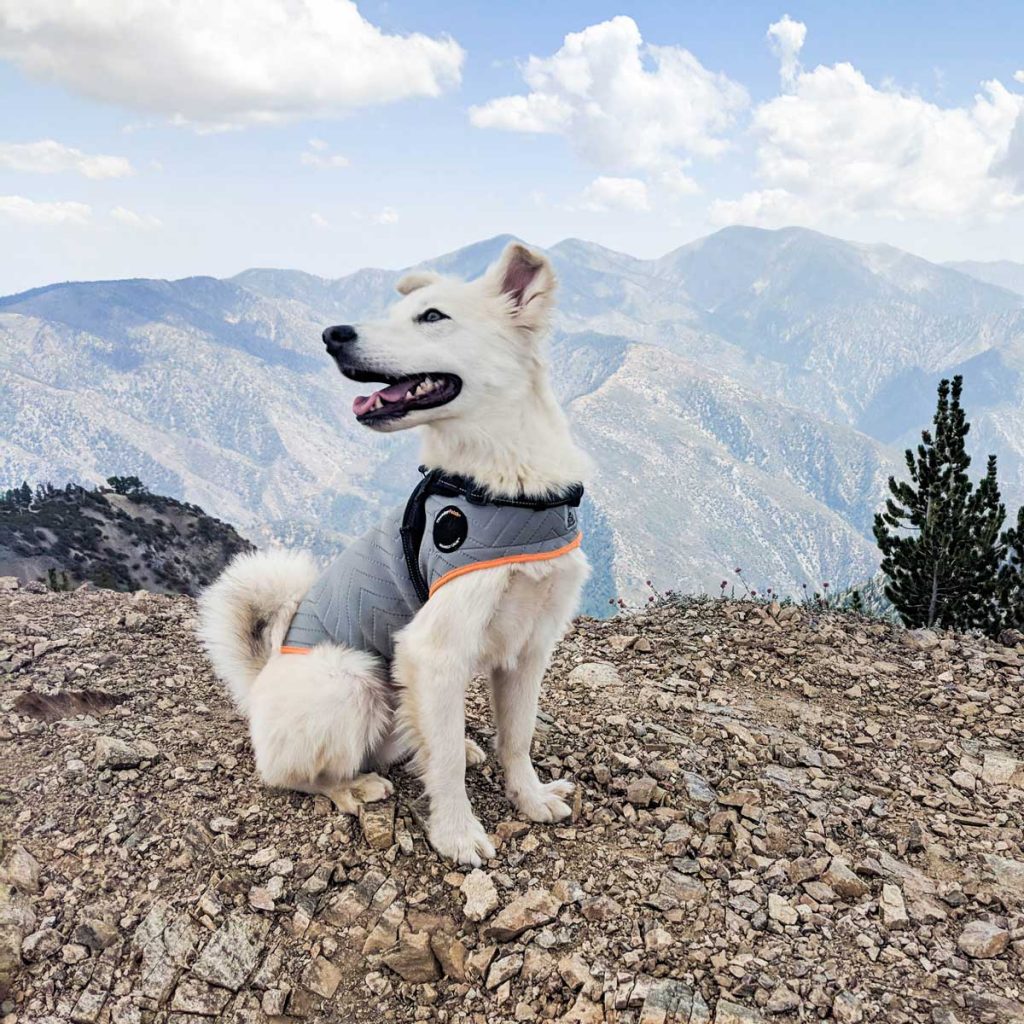
III
The drama, however, was far from over. On the way back to the apartment, we stopped at a small park fronting directly on a busy road.
Wanting to give Cash the freedom to explore, I unclipped his leash and stood ready to catch his collar, should he decide to suddenly bolt.
The fact I had anticipated such behavior from him should have been warning enough. While sniffing a bush, Cash’s ears went up and he turned, facing the road. In an instant was off, dashing past me and into traffic.
“Cash!” I screamed, staggering to the edge of the curb. But it was too late. He was already halfway across the road. “Go on, get hit then! See if I pay your vet bills.”
Part of me was already rationalizing it. If Cash died, wasn’t that technically natural selection in action?
“Bad!” I thought, slapping a mental wrist. These were thoughts entirely unworthy of a good dog owner.
My resignation softened into relief when Cash arrived unscathed on the far side of the road. Relief that he wasn’t injured, but also relief that I felt relief in the first place. Apparently, I still had a conscience.
Of course, I would have felt bad if he died. And yet…even with Cash alive, I somehow always felt bad. Guilty; like my best efforts were never good enough.
At last, I caught sight of Cash’s target: a short-set woman walking her two terriers. Cash immediately set himself to mounting one of them.
As I stepped out onto the road to follow, I knew then that maybe I was right; that what my dog required was something I was entirely incapable of providing.
IV
Dr. Kukosian’s decision to close her Koreatown practice had essentially been the nail in the coffin of our relationship.
But feeling in need of a therapist’s guidance more than ever, I decided to spend the following morning shrink-shopping.
After a raft of calls spent trying to nail down a candidate who was both available and willing to take my insurance, I managed to book a single appointment with a therapist in Westwood.
Dr. Ihekweme’s practice was nestled in the corner of a third-floor high-rise, decorated in the Art Deco style, with brass fixtures and columns clad in imitation green marble.
He greeted me at the door to his single-room office with a luminous smile and a bouncy baritone.
Above Dr. Ihekweme’s desk hung an oil print of a duck pond hedged with bulrushes. A bland, if not welcome, change from Dr. Kukosian’s Christian iconography.
“So, how are you?” Dr. Ihekweme said, as I settled onto a couch. My reply was almost automatic.
“Well, thank you.”
“Really?” Dr. Ihekweme replied. “So why then did you ask to see me?”
Recognizing the puckish glimmer behind his spectacles, I broke into a smile.
“Well, I’m struggling with a few issues right now,” I said, and stopped. Dr. Ihekweme nodded encouragingly.
As this was our first meeting, I contented myself with a background sketch of my situation with Cash. Soon, however, words were gushing from me in a torrent, as I ping-ponged from present-day anxiety to ancient grievance.
It wasn’t enough that I was telling my therapist that my anxiety was monopolizing my life. Rather, I felt that the best way to convey what I was feeling would be to figuratively vomit it all over his lap.
“You’re giving me good information here,” Dr. Ihekweme said, when I had finally stopped to take a breath.
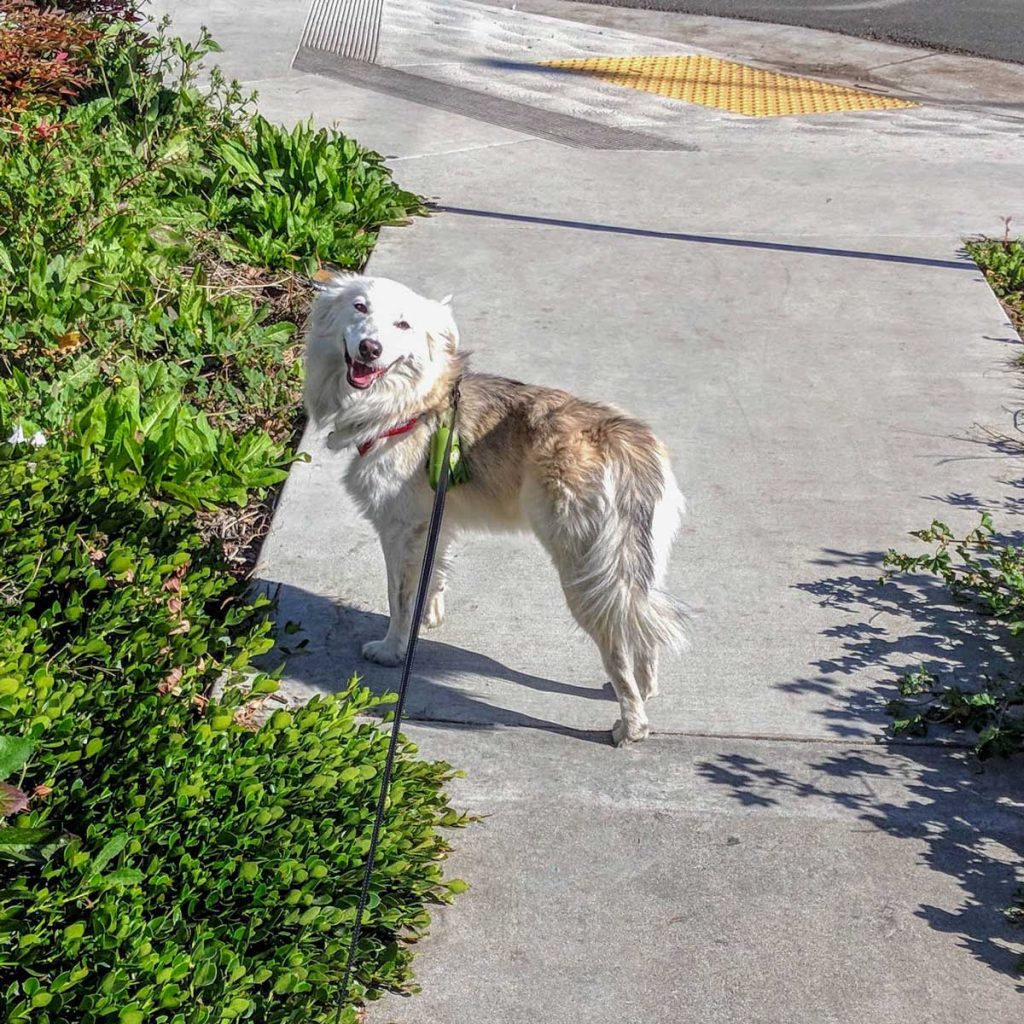
Was that a trace of surprise I heard in his voice? Surprise that I was able to pinpoint my problems so quickly and astutely? Or surprise that I was treating my own struggles in such an offhand manner?
I was relating my life to Dr. Ihekweme in bullet points; treating the relationship as if it were mere relay between telegraph operators, clipped sentences and all.
“So,” Dr. Ihekweme said, visibly struggling to digest everything my words. “You said you decided to go part-time at work a year ago?”
“Yeah,” I replied. “The idea was to take a break, so I could transition careers.”
“From what you’re telling me,” Dr. Ihekweme began, “it doesn’t sound like you’ve been having much of a break. In fact, it sounds like you are juggling quite a lot.”
“I guess so,” I replied. “I just… I just don’t know how to exist outside a state of preoccupation.”
Dr. Ihekweme adjusted his collar.
“And how long has it been like this?” he asked. The answer rose almost automatically to my lips.
“Fifteen years.” Dr. Ihekweme’s eyes widened. “It started when I was a teen. My family kinda went to pieces. I was being bullied at school. My way of coping was by working.”
“So all these extra commitments you have taken on,” Dr. Ihekweme continued, “they have become a burden for you.” I nodded. “Plus, you have your dog to think about, also.”
“Right,” I agreed. “I mean, I knew when I got Cash that he would require time and energy. Like any pet. But these days I feel like all I do is put out his fires. I’m feeling…” I searched, “…smothered. And guilty for feeling smothered.”
“Could we go back for a moment to what you said about your family?” Dr. Ihekweme said. I sighed.
It was a request I should have seen coming. While speeding through my carousel of thumbnail sketches about my life, my therapist had been noting critical facts.
The details I provided, I imagined, were the stuff of which clinical breakthroughs are made. And yet in my previous sessions, during which I’d discussed such experiences at length, no such breakthrough had come knocking.
Still, Dr. Ihekweme had extended an invitation, and an RSVP was due. I would have to venture into the place from which I long shied; the abode of ancient demons; my wellspring of grief, and loss.
The very same wellspring that had ultimately given rise to my neurosis.
Anxious Seeks Canine continues with Part 15: ‘If only’.

Essy Knopf is a therapist who likes to explore what it means to be neurodivergent and queer. Subscribe to get all new posts sent directly to your inbox.
© 2025 Ehsan "Essy" Knopf. Any views or opinions represented in this blog are personal and belong solely to the blog owner and do not represent those of people, institutions or organizations that the owner may or may not be associated with in professional or personal capacity, unless explicitly stated. All content found on the EssyKnopf.com website and affiliated social media accounts were created for informational purposes only and should not be treated as a substitute for the advice of qualified medical or mental health professionals. Always follow the advice of your designated provider.


